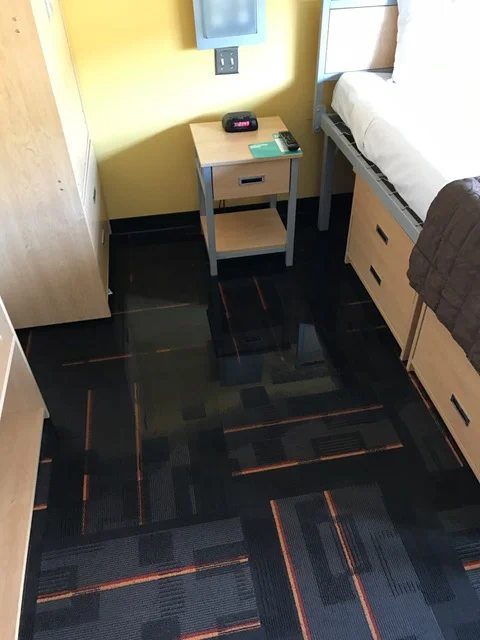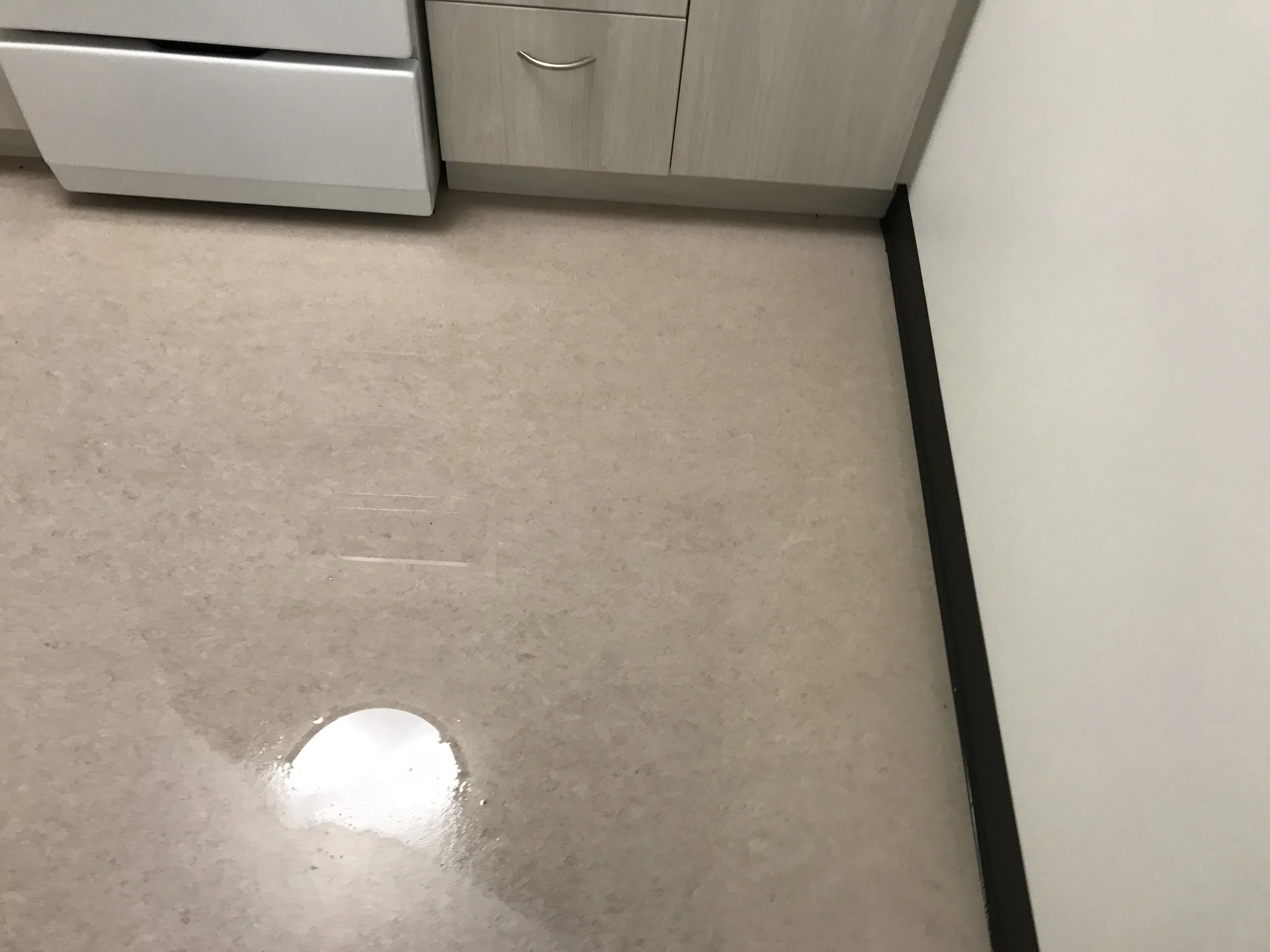Features
Tenant Insurance Information
Find out what tenant's Insurance is and what is usually covered.
Policies
Typical coverage provided by most policies
Frequent questions & Answers
Our answers to questions that students have asked about tenant insurance.
On Campus and Off Campus living
Living on campus? or are you living off campus? different requirements do apply.
If you are living off Campus, click the off campus to find out about the requirements and recommendations.
University of Calgary Residence
INSURANCE REQUIREMENTS
It is mandatory for students to have tenant insurance with a minimum of $1,000,000 in liability coverage while living in residence. This will cover fire, flood, and theft. This means Tenant Insurance
This will also cover those who are found liable for the damage to residence buildings. This includes fire, flood and other large damage to residences.
ALREADY COVERED?
If you go with your parents coverage, it usually only covers $10,000 worth of your belongs and if a loss occurs it can affect their insurance rates.
If you already have coverage or feel that your parents coverage is sufficient, you can provide residence services with proof of your insurance to this email address: residence@ucalgary.ca
Where can you purchase tenant insurance?
There are a few options that are available; the first is to go with a traditional broker the second is to purchase it online through a company such as a bank or insurance company. We have provided a few links to these online brokers for your convenience.
Many residence students currently use SouthSide insurance as their preferred broker. Kyle represents SouthSide and can often be found on campus during the first move in day as well as the first week of classes. He is usually located on the lower floor of the dining center if you would like to deal with him directly, or you can click the southside icon below and get in touch with them.
Tenant Insurance Guide
This is a simple list to help you with your purchase of tenant insurance.
Determine how much coverage you need.
- It is important to take note of your belonging, you can do this by jotting down note's or taking a video of everything you own.
- Make a list of your big-ticket items and electronics and estimate how much they cost.
- Create an estimate of your regular items or bulk items such as cutlery and clothes.
- Combine these items values to see your needed full coverage, if you need help with these you can use the below download link in-order to value your belongings.
Shopping for a policy
It is a good idea to check with multiple companies for quotes on your policy. Much like buying an expensive item, doing background research is an important aspect, as there may be cheaper policies available. A secondary note is cheaper policies are not always your best option. You should know what your policy covers and excludes, always make an informed decision the cheapest coverage may not cover everything you want covered.
Extra coverage
Basic polices often cover $10,000 and increase by $5,000 or $10,000 increments. Getting the right amount of coverage is important, so make sure you evaluate your belongings with accuracy. Many polices have limited coverage on items such as expensive electronics, specifically camera equipment. Other items that are usually limited or excluded on base policies are Jewelry, musical instruments, Bicycles, and Fine art. Typical base plans only cover these items up to $1,500 - $2,500. You should check your policy to ensure you are properly ensured.
You can add extra coverage to these products depending on your need and should talk to your insurer about adding these coverages to your base policy.
Legal coverage and protecting yourself from lawsuits
House parties and your insurance.
It is highly important to understand that as an adult you are now responsible for those you host.In certain circumstances, you could be found liable because of hosting a social gathering where alcohol is consumed by their guests. In 2006 it was ruled that generally hosts are not responsible for unforeseen damages caused by their intoxicated guests. (Childs v. Desormeaux)
What this means is to help prevent yourself from being liable for damages or harm your guests commit, you should take measure to protect yourself. One way to prevent yourself from being sued from unintentional actions is tenant insurance, which can provide legal defense and advice in such situations.
It is also important to understand a few laws if you are serving alcohol. If you serve alcohol to someone who is highly intoxicated and whom you know is driving home, you could find yourself in legal trouble, if you don't prevent them from driving. The best rule is to not let your friends drink and drive!
Social Host Liability
As a host of a party you are required to ensure the safety of your guests, this is called a duty of care, and is the same care a restaurant or a bar owes you when they serve you alcohol. Insurance often covers you if you are sued, however, its best to reduce your chances. There are several measures you can take to try and reduce their liability:
Monitor consumption of alcohol making sure to cut those you are serving off when they are drunk
Arrange transportation home for your friend. True friends don't let friends drink and drive!
- Take away a guest’s car keys
- Contact the guest’s family members or friends
- Alert the police if you cannot control the situation. In the case of residence contact campus security.
Also remember to follow residence services guides on parties. There are some activities that are not allowed such as drinking games, encouragement to consume excessive alcohol, and noise from speakers do violate the residency agreement.
Insurance only covers liability for unintentional acts.
It is important to note that insurance coverage and liability coverage under tenant insurance is not extended to you when the act is intentional. This includes acts that are intended to cause injury. Courts have ruled that by nature acts such as battery, assault and sexual battery, by nature are intended to cause harm, and the insurer does not have a duty to defend you.
The important note with the law is to understand that it is the intent of the act that results in the decision. If you intended to inflict harm then you would most likely find the insurance company would not have to protect you. If you did something by accident and this can be proven, then the insurance will help with the liability of your case.
The case law is stated in the leading case on what constitutes an intentional act with Non-Marine Underwriters, Lloyd’s of London v. Scalera, 2000 SCC 24. where Scalera was being sued for sexual battery and because this act is found to have had intent to injure the insurer did not have the requirement to defend.
Frequently Asked Questions about Tenant Insurance
Do I have to get tenant Insurance?
If you are in residence at the University of Calgary the answer is yes. If you are off campus the simple answer is no. However, many rental agreements include a clause which states that the renter understands that personal property of the tenant is not covered by the landlord, and the landlord assumes no liability for loss or damage. This means that without tenant insurance, your belongings which can total over $15,000 for many students would be lost. Simply put this means you are responsible for obtaining your own coverage.
One drawback for buying insurance is thinking you do not having enough items to insure. However, its important to consider your belongings as a laptop is often worth $1,000 to $3,000. Clothes and shoes can easily cost over $1200 considering: shoes, shirts, formal wear, undergarments, jeans. Kitchen items such as knives, forks, bowls, pans, toasters, kettles and your magic bullet can cost over $500. Bedding costing $150. All these costs could result in your dorm room costing $3100 at a minimum. Add in electronics or extensive clothing collections can easily increase these costs.
I don't own own a lot of items, why do I need tenant insurance?
How much does Tenant’s Insurance cost
Tenant insurance cost is affected by several aspects such as how much coverage you need, where your home is located, how your unit is constructed, the value of your property inside your home, and your insurance history. A typical range for tenants insurance is from $15 a month to $25 a month, or $150 to $260 a year.
How much is enough coverage for my contents?
Only you know your belongings and their value. Be sure to choose a limit that will cover the cost of replacement in the event of a total loss. We have attached an excel spreadsheet to help you estimate the value of your items. In the case of loss many insurers ask for a contents schedule of loss. The form below can help you recall the items which need to be replaced.
Each situation is different, typically the individual who causes the damage is on the hook. However, tenant insurance makes sure that you are protected and you are compensated, while the insurance company will handle the claims and legal liability side of the case. If you don't have coverage yourself you can be liable.
If another tenant or someone else causes damage to my apartment, who covers the damage?
Students in residence must have a minimum of $1,000,000 in liability coverage and have coverage against fire, flood damage and theft of your personal property. We suggest tenant insurance as it will cover you in a wide variety of situations.
What type of insurance do I need in residence at the university of calgary?
What benefits does tenant insurance provide me with?
Most policies provide you with many of the same benefits. Many of the policies also replace your belongings when what are called specific perils occur. This is a fancy way of saying, Fire, Lightning, Explosions, Smoke, Falling objects, impacts by aircraft or land vehicle, riots, vandalism or malicious acts, windstorm or hail,. Many tenant insurance policies also provide the benefit of relocation costs which is the cost to stay in a hotel while your rental unit is repaired.
The last important part of your coverage is liability and fraud protection. You will most likely be covered in the event that you are found liable for causing a fire in your rental unit, or if you are on vacation in Hawaii accidentally throw a baseball at someones head. In these events if someone took litigation against you the insurance would cover you up to the amounts you purchased. Regarding fraud many policies cover you in the event your identity is stolen or your credit cards are forged. This can help releive you of financial obligations that could occure during these events.

Losses
The reason students have purchased tenant insurance in the past.
The video below is from our friends at the University of New Brunswick, it demonstrates how quickly fire can spread, and although the sprinkler systems saves the building much of your belongs would be damaged either by fire or by water damage.
The following are losses that Students at the University of Calgary have experienced. These may not look like a lot of damage, however, in many of these cases the damage exceeded $15,000 due to damage to belongings and water flooding down to dorm rooms below.
You will notice warning signs under the sprinkler system, this is due to the damage caused by one student at the University of Calgary who hung their shirt on the sprinkler head. It ended up damaging the sprinkler and flooded the dorms causing over $80,000 in damage.
Please note that any and all information is not legal advice, and may contain errors, This information and website is primarily for educational purposes and was designed to be used as an educational tool.





















